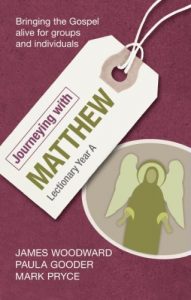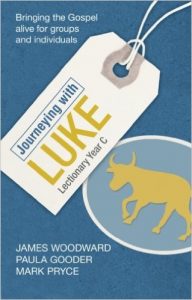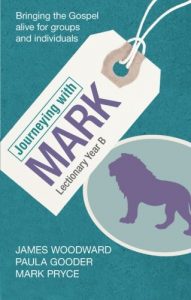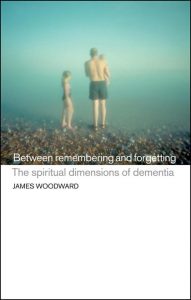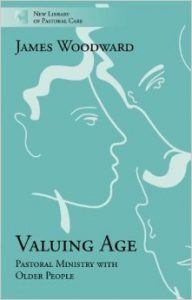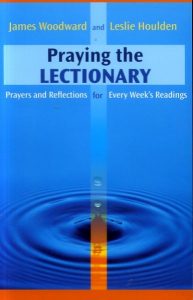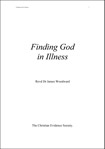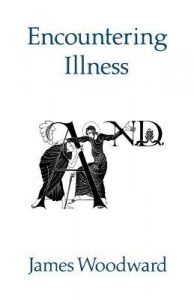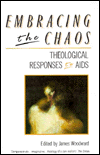Journeying with John
(with Paula Gooder and Mark Pryce), 2014, SPCK.
Journeying with Matthew
(with Paula Gooder and Mark Pryce), 2013, SPCK.
Journeying with Luke
(with Paula Gooder and Mark Pryce), 2012, SPCK.
Journeying with Mark
(with Paula Gooder and Mark Pryce), 2011, SPCK.
Between Remembering and Forgetting
The spiritual dimensions of dementia
Continuum Publishing Corporation
April 2010
A much-needed resource for reflection on the spiritual
dimension of dementia, Between Remembering and Forgetting
brings together contributions from distinguished and
experienced practitioners in the front line of dementia research
and care to explore the practical implications for Churches and
other faith groups, as well as for individual carers.
Reviews of Between remembering and forgetting
‘Between Remembering and Forgetting almost made me weep. It is a clarion call to everyone concerned to recognise that people with dementia, from its mildest to its most severe forms, can still communicate, still have spiritual longings, and that we can reach them, with our imagination and their help. Everyone who looks after, or is concerned with policy around the care for, people with dementia needs to read these glorious and humbling essays and learn from them.’
Rabbi the Rt Hon the Baroness Neuberger
‘As we enjoy longer life expectancy, dementia becomes an increasingly significant and fearful challenge to the quality of our life. This collection of essays invites us to consider dementia from a variety of perspectives. It is a clear and compassionate plea for us to work together to improve our thinking and action.’
Baroness Finlay of Llandaff, Professor of Palliative Medicine
and Chair of the All Party Parliamentary Group on Dying Well
‘I am grateful for this accessible, informative and educative book, and for its challenging, encouraging and humane tone. At its heart is the insistent call that we affirm the dignity of every “person” suffering dementia. It helps us to explore in depth the nature, the content and the context of good care. I hope it will be widely read.’
The Rt Revd David Conner, Dean of Windsor
Valuing Age:
Pastoral Ministry among Older People
SPCK New Library of Pastoral Care,
September 2008
Valuing Age: Review by Helen Cameron
As someone with regular contact with those in pastoral ministry I am conscious how little time they have for reading and how small their book budgets often are. This book can be warmly recommended to pastoral carers as a sound investment that will be used repeatedly. It is clearly written and free from jargon. Each chapter has a clear focus and can be comfortably read in half an hour. Chapters start with vignettes of experience which serve to draw the reader in and emphasize the diversity of experience amongst older people. They end with exercises that stimulate reflection and questions that provoke discussion. This structure means that the book lends itself to small-group sessions.
Readers of Practical Theology will recognize James Woodward as one of the editors of the Blackwell Reader in Pastoral and Practical Theology. Valuing Ageing exemplifies the pastoral cycle with each chapter starting with experience, exploring the issue, inviting the reader to reflect, and concluding with questions designed to lead to action. I would like to have seen more points of connection with the Christian tradition but recognize the challenges of doing this in a book designed to be read across traditions in the SPCK New Library of Pastoral Care.
The book is divided into three parts. Part One helps the reader understand the phenomenon of ageing by drawing together relevant ideas from demography, gerontology and health care. Part Two deals with nine issues that those offering pastoral care will encounter, including worship, memory, sexuality, gender, learning, retirement and health. Part Three offers some substantive conclusions in the areas of social policy, theology and personal preparation for old age. The book concludes with a list of useful organizations and suggestions for further reading. I regret the lack of an index as there are some important themes such as mental health, bereavement and the role of the Church which it would have been helpful to track through the book.
Valuing Ageing gently challenges the prevailing ageism of Church and society. Is old age a problem to be solved or is it a life stage with its own purposes and joys? Can the spirituality of older people embolden the Church to resist the cultural dominance of the market with its uniform aesthetic of youthfulness? Will the baby-boomer generation succeed in ensuring their spiritual needs are met in contrast to the marginalization of earlier generations? As the director of a small charity supporting the spiritual care of older people in residential homes, it is evident how resources are focused on physical needs rather than spiritual needs. By contrast this book draws out the spiritual gifts of older age: Remembering as a means of securing our own identity. Travelling to dependence, as a journey to simplicity. Forgiveness, as a means of drawing together the threads of our story.
The author emerges from the text, not only as a skilful practitioner but as someone who has thought through the personal implications of ageing and so presents it as “something for us all” rather than “something that is happening to other people.”
From Equinox Online, 1 Chelsea Manor Studios, Flood Street, London SW3 5SR.
© Equinox Publishing Ltd 2010.
Praying the Lectionary: Prayers and Reflections for Every Week’s Readings.
James Woodward and Leslie Houlden,
SPCK December 2006
The readings at the Eucharist go past in a few minutes, one after another, and how many of the hearers can recall much about them by the time the service has ended? It seems a waste, and it feels sometimes that they are just a symbol of our needs and duty to listen to the scriptures. There are ways of improving things. The Sermon that follows them, is, of course, the first weapon – but the Preacher can scarcely focus on all the readings and may have a particular message to give to which a biblical passage is only loosely related. And alas, even the Sermon may not survive long in the memory. What can be done to give the scripture readings a longer life of their hearers and a deeper effect on their minds?
In this book, based on the experience of one Parish, we provide such material for each Sunday and other Holy days in the three-year-cycle. For each reading, we give a brief comment and then bullet-point directing us to prayer. The hope is that their scale and character may be of service to other Parishers that feel in need of such a resource and to individuals for prayer and reflection”.
What can be done to help members of a congregation to remember scripture readings?
How can biblical passages have a deeper effect on hearers’ hearts and minds?
These are questions that James Woodward and Leslie Houlden have sought to address in Praying the Lectionary. The clear, uncluttered pages of this book provide brief commentaries and prayer points to accompany the readings for Sundays and other Holy Days in the three-year Common Worship Lectionary cycle. Designed for both individual and group use at church or at home, the attractively laid out, easily digested material encourages the user to receive and retain prayerfully the meaning of each scripture passage.
‘In the Christian life we all need all the help we can get – especially in reading the Bible. It is particularly crucial that the Sunday Bible readings are illuminated. Praying the Lectionary does this and will be of great value both to individuals and groups. The combination of biblical scholarship and pastoral wisdom offered here by James Woodward and Leslie Houlden makes it a stimulating and practical guide. I commend it most warmly.’
Richard Harries
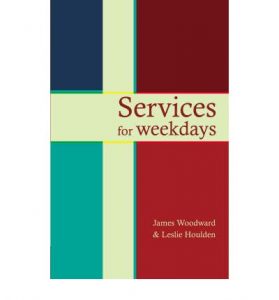
Services for Weekdays:
Readings, Reflections and Prayers
FOREWORD by The Most Revd Dr John Sentamu, Archbishop of York
Just within the borders of the Diocese of Birmingham is the Lady Katherine Leveson Foundation. Dr James Woodward is Master of the Foundation. In his time as Master, James has reminded us locally and nationally of the importance of thinking about and reflecting upon and responding to the religious needs of older people, both in our congregations and communities. This important message is one we must listen to and respond to accordingly.
This invaluable book has been written in partnership with Professor Leslie Houlden who, for many years, has worked in theological education especially attempting to relate the New Testament to Christian discipleship. His wisdom and expertise are very evident in the editing of this book. It will be an excellent resource for clergy and lay people who are planning short weekday services with a variety of people – for example young families and parents. In this respect, groups of older people or young parents who worship on weekdays are just as important as the Sunday congregation and deserve as much thought and preparation. In busy lives, it is not easy to do. This is where this book is so helpful in that it offers the highest possible standard of service material for any group. This is something I constantly do myself and this book will have a permanent place on my desk!
Worship is central to the Christian life and, as disciples of Jesus Christ, we should put as much energy, imagination and creativity into our worship so that we are nurtured and challenged to live the Gospel.
I was particularly pleased to be asked to review this book as James Woodward had recently provided the keynote speech at The Almshouse Association’s Annual General Meeting and, as I had anticipated, his talk was thought provoking and stimulating.
I had anticipated similar stimulation from James Woodward’s book written in conjunction with Leslie Houlden – I was not to be disappointed.
The aim of the book is clearly iden-tified in the introduction: “People, both clergy and lay, who are called upon to lead worship on weekdays in groups of many kinds, often find themselves in need of aid which is not always readily forthcom-ing. Sometimes they operate at short notice; sometimes they find no ready source of assistance with readings, addresses or prayers; sometimes they need a prompt in the wings.”
This book certainly offers this prompt, not only for each week but also for the major occasions of the year. (t is an excellent compilation of readings from the Scriptures, followed by usually two comments on each passage and finally bullet points to stimulate prayer or further reflection.
In his foreword, the Archbishop of York describes the book: “This is where the book is so helpful in that it offers the highest standard of service material for any group … this book will have a permanent place on my desk”.
I share such a view and can highly recommend the book, not only for the almshouse community but also wider use to both individuals and groups.
Trevor Hargreaves
Almshouses Gazette, issue 204 autumn 2006
Befriending Death
SPCK 2005 ISBN 0-281-05370-7
128 Pages Paperback
Although most of us desire a life of peace and commitment, sometimes we are required to look death in the face – be it through bereavement, serious illness or even the end of a relationship. This book addressed to the Christian reader who wants to reflect not only on the place and meaning of death in life but also on the issues that loss and change confront us with. It offers the reader the chance to reflect, fell and explore.
Written for those who embrace the realities of death and those who stand in the presence of death, this book can be used alone or with others. Practical exercises and questions for reflection are contained within each chapter to help the reader understand the life that prepares us for death. This is not about life after death; rather it is about discovering and engaging with death within this world. It is ideal for those who need practical help or those who simply wish to learn more about this sensitive subject.
By Death, our sister, praised be,
From whom no one alive can flee,
sang Francis as death approached.
In this short book James Woodward sets out to rob Sister Death of the various disguises with which, in our ignorance, fear, denial and confusion, we have clothed her. The book itself occupies 75 pages – the remaining 46 consist of appendices and bibliography.
Ch.1 explores the theme; the reader is invited to participate by means of pondering questions, and doing a simple exercise. Ch.2 relates spirituality and dying. Ch. 3 is perhaps the heart of the book and is about listening. Ch.4 – Living while Dying – is for those who live with the knowledge that they are near death. Ch.5 deals with preparation for and facing death, and concludes with an exercise. Ch.6 – Resources from the Tradition, centres on the death and resurrection of Jesus Christ. Ch.7 is practical – preparing for one’s own funeral, and Ch.8 gives conclusions.
This book pulls no punches, it calls a spade a spade. At the same time it is written with sensitivity, and the overall effect is to provide light and reassurance. Particularly valuable are the appendices – ‘What to do after a death’, and ‘Information and resources’.
On the back cover we read that ‘This book is addressed to the Christian reader’… This should include the multitudes for whom ‘Christianity’ is a faded memory, or a deeply buried and general apprehension, rather than a living faith – for they, too, as death approaches, stand in need of the help which this writer offers.
Anselm SSF
The Franciscan, September 2006
This latest offering by the Director of the Leveson Centre is a real gem. The main text is only 75 pages long though this is supplemented by a further 30 pages of helpful appendixes. It is a timely book. As we age we cannot but be aware of death despite living in a largely death-denying society. The fact of death, the process of dying and the question of what may lie beyond this life cannot be ignored.
Befriending Death is a fascinating mix of the intensely spiritual and the immensely practical. Most of all it is totally honest. This means that it is not an easy read because it confronts its readers with issues we might prefer should lie dormant. Its central message is that we need to ‘face death and live’. The format encourages us to listen to the voices of some of those facing terminal illness, and helpful preparatory ‘exercises’ are suggested. There is a strong chapter on ‘Resources from the (Christian) Tradition’ which is very much cross-centred. The author explicitly excludes addressing the matter of life after death, but this is more than made up for by the final appendix comprising a brief anthology of prayers and spiritual readings.
The book is full of arresting thoughts, off which these are some of my favourites: ‘To give is to be powerful; to receive is to be vulnerable’ … ‘we may have to accept that for many years we have been tolerated rather than loved’ … ‘To face death is to let go of the future. It is to live in the present. There is no easy way of doing this’ … ‘learning to die is the key to our freedom’ …’Christ created his own death. He gave himself to it’ …
Get this book and cherish it. Read it slowly. Use it as a practical resource. Take to heart what it says. It is a small treasure.
Albert Jewell
If you think that death makes for morbid reading, then you need to read this book. For one of its messages is that we begin to die from the moment we are born, and that we need to prepare for death during life, to ‘practise dying’, if we are to die well.
James Woodward, who was Bishop Richard’s first chaplain, is well-placed to lead thinking about death and dying: he spent a year as an auxiliary nurse at St Christopher’s Hospice, south London, and is now founding director of a centre in the Midlands for the study of ageing, spirituality and social policy. He was for several years chaplain to the Queen Elizabeth Hospital in Birmingham, and has a book on illness to his name.
One of the characteristic strengths of his writing is the space given to different voices which talk about the subject from a personal angle, and which root the discussion in the reality of diversity and people’s lived experiences. Another strength of this book is its recurrent attention to the practicalities of death and dying. Yet a third strength is that the perspective of faith is not assumed, or intrusive, but unapologetically present, and offered as a resource. This means that the book may be as useful to someone uncommitted to Christian faith as to someone committed, whether facing the death of a loved one, or facing death themselves, or simply endeavouring to embrace the reality of death more honestly and creatively ‘in the midst of life’.
Michael Brierley
The Blackwell Reader
in Pastoral and Practical Theology
Blackwell 1999 – Two Editions
“This is a textbook to be recommended. The whole spectrum of practical theology, including the feminist perspective, is covered.” Norbert Mette, International Journal of Practical Theology
“An invaluable book for teachers and students of pastoral theology, this is a ‘must’ for any serious student of pastoral theology” Journal of Beliefs and Value
“As a resource for students and teaches in the field, this is a Reader that is practically de rigueur for a theological library or personal bookshelf…The editors and Blackwell publishers should be congratulated on this very fine contribution to theological enquiry and practice..” Australasian Catholic Record
Finding God in Illness
Lion 1997.
Encountering Illness:
Voices in Pastoral and Theological Perspective
SCM 1995
Embracing the Chaos:
Theological Reflections on AIDS
SPCK 1990 – Four Editions

